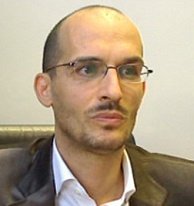How will your research contribute to extending healthy human life?
It has been clearly shown that dietary restriction is one of the most powerful intervention to slow aging and prevent and/or delay multiple
What were the major breakthroughs made by your laboratory or companies?
I was instrumental in launching a number of important clinical studies to investigate whether or not calorie restriction without malnutrition in humans result in the same biological adaptations that occur in
Can your research be commercialized in the future and is there any way to invest in this research today?
Yes, it can be commercialized. There is a potential huge markets of people that would like to understand their metabolic health status (well before diseases appear) and have tailored (nutritional, exercise, and pharmacological) treatments prescribed by a team of
In your opinion, what are the most promising companies contributing to longevity research today?
Well, there are not many. CALICO is one of the new one. We will see if they are going to be successful in delivering what they have promised, or they are going to end up like SIRTRIS.
Do you think there will be significant breakthroughs in longevity research in the next decade?
Of course! I am positive.
Do you think it is a good time for iVAO to get into longevity business and invest in biotechnology in general?
Yes, even if I do not know anything about iVAO.
Can you say a few words about the upcoming conference in St. Petersburg? What are your expectations?
I think that this is going to be a great meeting held in wonderful town.
I am looking forward to discuss and exchange information with other scientists.
